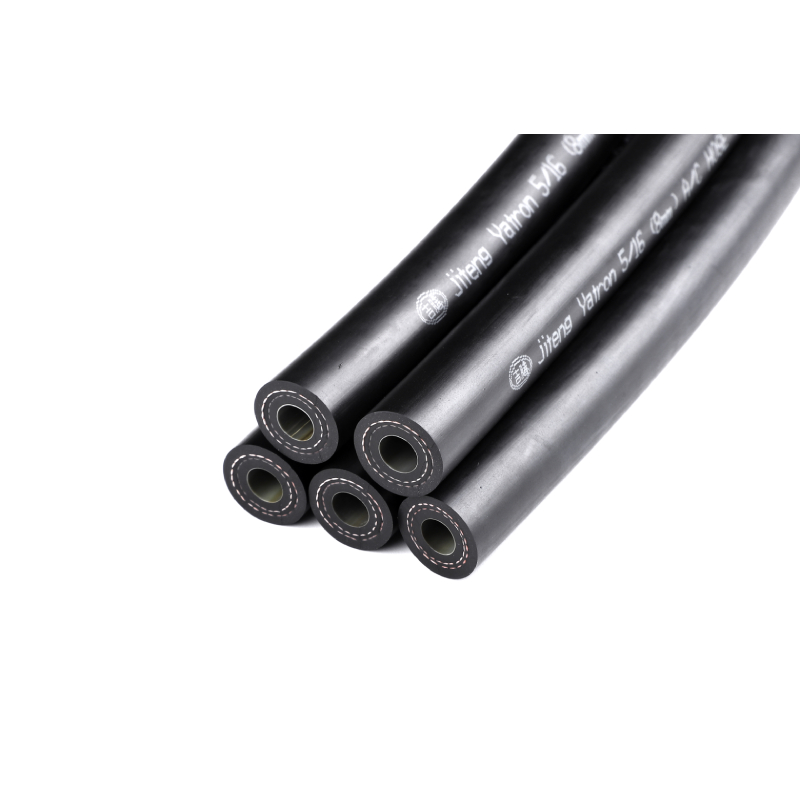gasoline hose
Sep . 08, 2024 15:08 Back to list
gasoline hose
The Importance of Gasoline Hoses in Fuel Delivery Systems
Gasoline hoses play a crucial role in the transportation and delivery of fuel, enabling a seamless flow of gasoline from storage tanks to vehicles. These hoses are specially designed to handle the unique challenges posed by petroleum products, ensuring safety and efficiency in the fueling process.
Construction and Materials
Gasoline hoses are typically made from a combination of rubber and synthetic materials, specifically formulated to resist the corrosive effects of gasoline and other fuel types. The outer layer is designed to protect against external elements, such as abrasion, UV rays, and extreme temperatures. Meanwhile, the inner lining is engineered to prevent leaks and maintain the integrity of the fuel being transported. This dual-layer construction is essential in preventing environmental contamination and ensuring the safety of both the user and the surrounding area.
Safety Standards and Regulations
Given the flammability of gasoline, stringent safety standards and regulations govern the manufacture and use of gasoline hoses. Agencies such as the American Petroleum Institute (API) and Underwriters Laboratories (UL) have established guidelines to which manufacturers must adhere. These standards include specifications for burst pressure, temperature resistance, and chemical compatibility. Complying with these regulations not only ensures the safety of users but also minimizes the risk of accidents that could lead to catastrophic results.
gasoline hose

Common Applications
Gasoline hoses are widely used in various applications, from gas stations to industrial fueling operations. At gas stations, these hoses connect pumps to dispensers, facilitating the quick and efficient refueling of vehicles. In industrial settings, gasoline hoses are used to transfer fuel to machinery and equipment, ensuring ongoing operations and productivity. Additionally, they are utilized in recreational settings, such as for fueling boats and small engines.
Maintenance and Inspection
Regular maintenance and inspection of gasoline hoses are essential to ensure their longevity and effectiveness. Users should routinely check for signs of wear, such as cracks, abrasions, or discoloration. Any visible damage should be addressed immediately, as a compromised hose can lead to dangerous leaks. Moreover, it’s advisable to replace hoses according to the manufacturer’s recommendations or at the first sign of deterioration.
Conclusion
In conclusion, gasoline hoses are vital components of fuel delivery systems, providing the necessary means to transport gasoline safely and efficiently. Their specialized construction ensures they can withstand the harsh conditions of fuel transport, while adherence to safety standards protects users and the environment alike. Regular maintenance and prompt replacement of worn hoses further enhance safety and operational efficiency. As we continue to rely on gasoline for transportation and power, understanding the importance of gasoline hoses will help foster a safer and more efficient fueling landscape.
